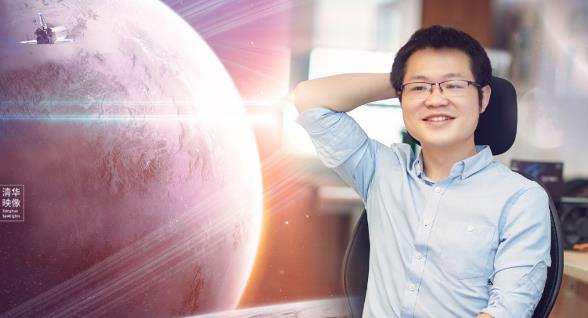
Cao Dezhi, a 26-year-old PhD student in the Department of Engineering Physics, is the CEO and co-founder of a spaceflight startup.
His startup, Star Detect, develops functional payloads for microsatellites––the sensor nodes that collect data in space, including on planetary surfaces. In the midst of the COVID-19 pandemic which has hit hard many startups globally, Cao’s business venture caught investors’ attention, securing much-needed seed capital and winning several major business deals.
Cao said the recent entrepreneurial success would give a major boost to his tech startup, which aspires to lead in the future in satellite payloads manufacturing.
Starting from Tsinghua
Cao was the President of the Business Association of Tsinghua Entrepreneurial Student (BATES) in 2016, an association that fosters entrepreneurship among Tsinghua students. During his tenure, he organized the 20th Tsinghua Entrepreneurship Competition and met many passionate entrepreneurs from inspiring start-ups.
“That experience actually encouraged me to be an entrepreneur myself,” he said.
Tsinghua is highly committed to promoting entrepreneurship and innovation among its students. Apart from providing support and resources to associations like BATES, Tsinghua offers several other educational platforms such as x-lab and ChuangPlus that enable students like Cao to turn their innovative tech business ideas into successful startups, by connecting them with potential investors and established entrepreneurs.
A trip to Lanzhou
Initially, Cao planned to pursue his career in accelerator physics. However, after a few years of study, he found his interests did not lie in the subject as much as he had thought. And in 2018, his supervisor left Tsinghua to work full time on a less invasive treatment of cancer.
Confused about his career path, Cao went to Lanzhou on a PhD deep dive program. It was in the wind and dust of the vast desert that Cao realized what he wanted to do with his life. “Everyone has to be true to oneself,” he thought. As he reflected on his life choices, a voice echoed from within: entrepreneurship.
“This could be my graduation challenge in Tsinghua,” he told himself. “And a challenge in life, too.”
Understanding the meaning of entrepreneurship
The space industry in China is gradually transitioning from a government-supported industry to a self-reliant commercial industry. Cao realized that the commercial space industry in China is still at a nascent stage, but with huge growth and profit potential if it is able to develop innovative technologies.
Cao teamed up with a fellow PhD graduate in his lab (later CTO) and they decided to start a business together. His startup focuses on satellite payloads and develops the second generation of gamma-ray detection payloads. Sensing the business potential of their technologies, Cao reached out to some investors for funding, but without success.
An investor’s words woke him up: “Tech students always talk about technology, not the real market.” Cao felt embarrassed but also realized that waiting for customers was not how business was done. He learned that entrepreneurship was all about walking into a “no man’s land.”
Cao said that his education and entrepreneurial experiences at Tsinghua had prepared him and his team well to lead his startup, to navigate the latest “hard tech” trend, and to develop it into a successful business. He was confident that entrepreneurs from Tsinghua would be able to contribute to society in the future.
Writer: Long Xinli
Editors: Sangeet Sangroula, Liu Shutian

